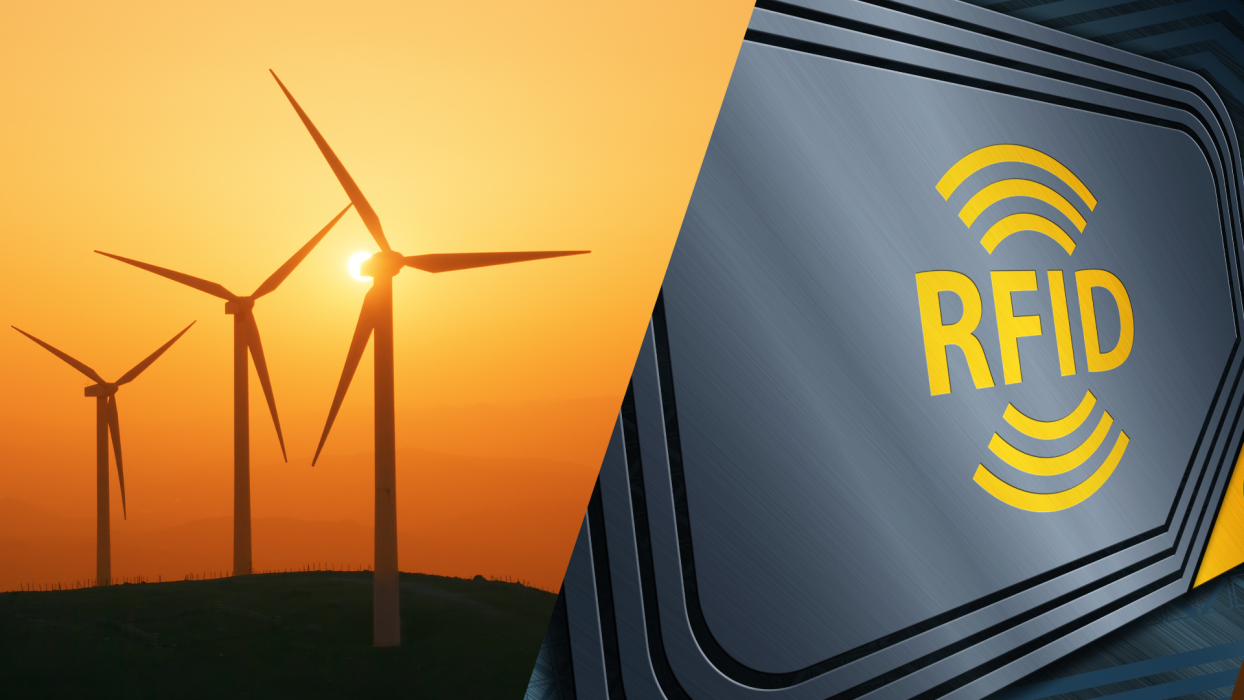In the ever-changing landscape of Retail, sustainability is becoming an increasingly important topic. Consumers are increasingly seeking ethically produced clothing items, while retailers strive to reduce their ecological footprint. In this quest, RFID (Radio-Frequency Identification) technology has emerged as a powerful tool. From streamlining inventory management to optimizing the Supply Chain, RFID is reshaping the industry's approach to sustainability. This article explores the crucial role of RFID in promoting sustainable practices within the fashion Retail.
Smart Inventory Management with RFID promotes Sustainability
Smart inventory management with RFID promotes sustainability within the whole retail branche by enabling more efficient processes. By adding RFID tags to products, retailers can accurately track their inventory levels in real-time, including the exact location and quantity of each product. This prevents overproduction as demands can better predicted which leads to less waste of resources and energy.
RFID helps optimize transportation and logistics by providing real-time visibility of inventory. Thus, companies have an accurate and up-to-date overview of the location and status of their products and materials throughout the entire supply chain, from factory to final destination. With this real-time information, companies can manage their transportation and logistics processes more efficiently and minimize unnecessary transportation movements.
Additionally, RFID minimizes overstock and waste by enabling retailers to optimize their inventory levels, reducing excess inventory and the need for additional storage space. This not only reduces environmental impact but also limits the need to write off or dispose of unsold inventory.
With improved accuracy and efficiency in inventory management, retailers can use their resources such as labor, time, and energy more efficiently, leading to lower operating costs and improved sustainability of their operations.
RFID's Contribution to Sustainability in the Supply Chain
RFID technology significantly contributes to sustainability in the Supply Chain through various applications that enable ethical production and packaging optimization.
The use of RFID tags enables companies to accurately trace and verify the origin and production conditions of materials and products, contributing to ensuring ethical and sustainable practices throughout the production and supply chain.
Another important application of RFID is the optimization of packaging and material usage. By adding RFID tags to packaging, companies can improve the traceability and authenticity of packaging materials, which can help improve recycling, minimize waste and promote sustainable packaging practices.
Furthermore, RFID technology enables retailers to better manage their inventory levels throughout the entire supply chain, from distribution centers to stores. This also helps get products to the right place at the right time, reducing the need for expedited shipments and re-deliveries, which contributes to reducing returns and a more efficient supply chain.
This broad deployment of RFID technology in the supply chain enables companies to adopt a more holistic and sustainable approach to their business operations, taking into account social, environmental, and economic aspects.
Another crucial dimension to increase sustainability for RFID applications in retail lies in the RFID tags themselves. Therefor Eco RFID tags represent an innovative advancement within RFID technology that focuses on reducing environmental impact. These tags are produced using sustainable materials and production processes that minimize the ecological footprint. In contrast to conventional RFID tags, which are often made from materials with significant environmental impact, such as plastic, Eco RFID tags are plastic-free. There are also companies producing labels made entirely from fiber-based paper that can be recycled in an environmentally friendly manner. By opting for Eco RFID tags, companies can demonstrate their commitment to sustainability and contribute to a cleaner and greener future.
Through the use of RFID, companies can not only improve their operational efficiency but also reduce their ecological footprint, which is essential for a more sustainable future.

What is the vision of an RFID expert in terms of sustainability?
At Mieloo & Alexander, we believe that the implementation of RFID technology plays a crucial role in promoting sustainability. By smart inventory management using RFID, we can not only improve operational efficiency but also reduce the ecological footprint. Thanks to this technology, we can precisely know which products we have and where they are in the retail chain, minimizing unnecessary inventory and waste.
With the right inventory, we can better meet the ever-higher expectations of consumers, saving costs and increasing customer satisfaction.
The contribution of RFID to sustainability in the supply chain is also invaluable. With improved traceability and efficiency, we can optimize transport routes and reduce overproduction.
With RFID technology, customers are happy, retailers save costs, and it benefits our world. "In short, everyone is content - contributes to our collective success! Let's build a more sustainable future together," says Rob Sliedrecht, Commercial Director at Mieloo & Alexander.


